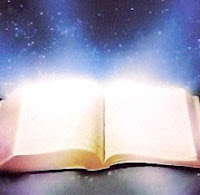The Lord said to me…”I will test my people with a
Plumbline, Amos 7:8 (TLB)
The Plumbline is a blog to encourage the Body of Christ.
#1 Daniel of Jerusalem: (Personal History of Daniel)
Daniel 1:1-3
(NLT) 1 During the third year of King Jehoiakim’s reign in Judah, King
Nebuchadnezzar of Babylon came to Jerusalem and besieged it. 2 The LORD gave
him victory over King Jehoiakim of Judah and permitted him to take some of the
sacred objects from the Temple of God. So Nebuchadnezzar took them back to the
land of Babylonia and placed them in the treasure-house of his god. 3 Then the
king ordered Ashpenaz, his chief of staff, to bring to the palace some of the
young men of Judah’s royal family and other noble families, who had been
brought to Babylon as captives.
 |
| Insights for Life |
The first two verses of
the Book of Daniel state when and how the prophet was taken to Babylon. The
events in the book began in the third
year of the reign of Jehoiakim king of Judah. This seems to conflict with
Jeremiah’s statement that the first year of Nebuchadnezzar, king of Babylon,
was in the fourth year of Jehoiakim’s
reign (Jer. 25:1). An explanations may be given for this apparent discrepancy.
The difference was between Jewish and Babylonian reckoning. The Jewish calendar
began the year in Tishri (September October) while the Babylonian calendar
began in the spring in the month of Nisan (March-April). If Babylonian
reckoning were used, the year Nebuchadnezzar besieged Jerusalem was the fourth
year of Jehoiakim’s reign. But if the Jewish reckoning were used it was
Jehoiakim’s third year. Daniel, a Jew, may well have adopted the familiar
Jewish calendar. If Daniel used the Jewish method of reckoning (which did not count the first months of a king’s
reign before the new year) he then counted only the three full years of
Jehoiakim’s reign. The year was 605 b.c.
Nebuchadnezzar’s
besieging of Jerusalem took place
during the reign of Jehoiakim, the
17th king of Judah and eldest son of
Josiah (cf. 2 Chron. 36:2 with 2 Chron. 36:5). When he returned to Babylon from
this invasion of Judah, he brought spoils to signify Judah’s submission to
Babylon.
First, he
brought some valuable articles from the
temple in Jerusalem which he placed in the
temple of his god in Babylonia (cf. 2 Chron. 36:7). “His god” may have been
Bel, also called Marduk, the chief god of the Babylonians (cf. comments on Dan.
4:8). (In Heb. the word rendered Babylonia is Shinar, niv marg., an ancient name for that land; cf. Gen. 10:10;
11:2; 14:1; Isa. 11:11, niv marg.;
Zech. 5:11, niv marg.) This would
signify the conquest of the God of Judah by the Babylonian deities.
Second, Nebuchadnezzar
brought with him some of the Israelites
(Jews) from the royal family and the nobility.
These royal princes may have been considered hostages, to help assure Judah’s
continued submission to Babylon. They may have been taken to Babylon to prepare
them to fulfill positions of administrative leadership there if Nebuchadnezzar
should have to return to subjugate Judah. Ashpenaz
was chief of the court officials. He is mentioned by
name only here in the Old Testament but is called “the chief official” six
times (Dan. 1:7-11, 18).[1]
We shall see over the
upcoming articles some of the mighty works that God wrought through this
extraordinary prophet, Daniel.
[1]
Adapted from The Bible Knowledge
Commentary: An Exposition of the Scriptures (Da 1:2). Wheaton, IL: Victor
Books.






